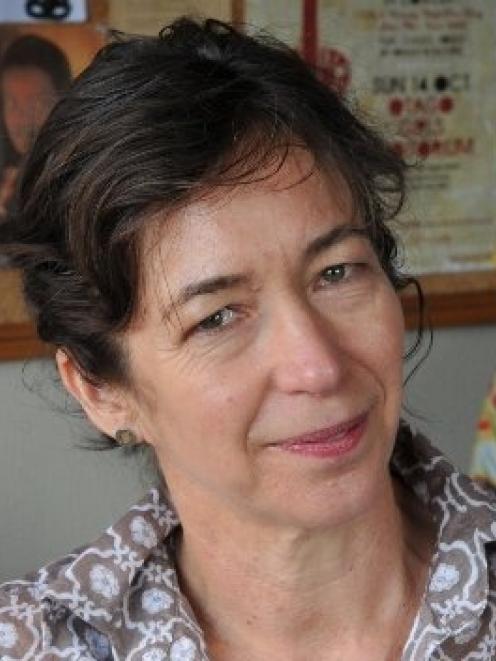
It was the obvious question for a leading New Zealand poet: ''What makes a good poem?''''If you poke it with a stick and it moves it's alive,'' Sue Wootton says.
''It's something about condensed energy, and the integration of sound and sense - every poem is its own creature. It has a life.''
A poem is patterned language, but the patterns might be formal or free-form, realistic or abstract. A poem might be humorous, sad, delightful, easily accessible or challenging and obscure.
Poetry, according to Wootton, is a broad church.
''Sometimes it might be mystical, mysterious, magical. These are all part of the power of poetry.''
Wootton believes good poems and good poets are ''attentive to the world''.
And, like pieces of visual art, poems can be effective for conveying reverence or for exploring complexities and uncertainties.
For those of us scared of, or frustrated by, poems, Wootton says, ''Sometimes we're listening too hard with our brains, when we ought to listen with our whole body.''
She relays the advice of T. S. Eliot. ''Genuine poetry can communicate before it is understood,'' he said.
Wootton follows the distinguished Brian Turner and Emma Neale as Monday's Poem editor. She was at first a little reluctant, aware of the difficulties of making hard choices and possibly causing hurt in a small community.
But she's by nature up for fresh challenges, and she's willing to help foster the craft she cherishes.
Her qualifications are indubitable - three published books of poetry, a children's book and a collection of short stories.
She's won several poetry and fiction prizes, was placed second in this year's prestigious international Hippocrates Prize for Poetry and Medicine, and was the 2008 Robert Burns Fellow at the University of Otago.
Some of her internationally published work has been translated into Hungarian, Romanian and Spanish.
She was mentored by writer Elizabeth Smither through the New Zealand Society of Authors (2003), and last year received the society's mid-career writer's grant.
This month she was named as the judge of the Dunedin-based Caselberg Trust poetry competition. Accompanying this article is an example of her work.
Yet, Wootton (51) was a late starter. The daughter of parents who in 1961 migrated from Southern Africa, she had a reading-rich upbringing in Wanganui and Wellington, which fostered a love of language.
Initially, however, she pursed a career in physiotherapy and acupuncture, coming to own two Dunedin physiotherapy businesses.
But her fascination with language tugged away, and when she took a year off after her youngest child was born a new course began to be charted.
Not that it came easily. It was as age 40 loomed that her first poems were submitted for publication. They were accepted, by Takahe Magazine.
She was on her way, although just in case she dared get ahead of herself, it was at least a year and several rejections later before her work was in print again.
These days, Wootton (51), who has children aged 20, 17 and 13, writes in several genres.
For recent Invercargill celebrations for the centenary of Dan Davin's birth, she adapted some of his stories for the stage.
Earlier this year, a screenplay she wrote from one of her own stories was filmed by Short Film Otago. Each morning is spent wrestling out 1000 words for her first novel.
As well, she is studying for an MA in creative writing through Massey University, focusing on medical ethical dilemmas and examining how reading literature can help us make better decisions in real life.
Another obvious question had to be: ''How do you become a good poet?''
Wootton, perhaps reflecting on her own journey, says first and foremost poetry must be a pleasure. But, like other artistic fields, expertise comes via a long apprenticeship.
''You need to be immersed in poetry.''
It's about paying attention, to life and to language. Above all we all have to ''read, read, read''.










